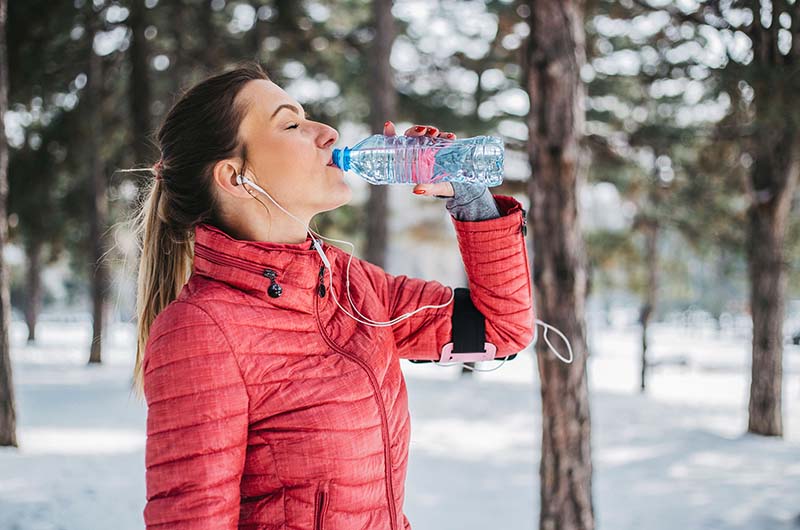Is winter dehydration sneaking up on you?

Most people associate dehydration — which happens when the body loses more water than it takes in — with scorching summer days. Though often overlooked, staying hydrated is just as important during winter.
Water helps regulate your body temperature, lubricate and cushion your joints, spinal cord and other sensitive tissues and eliminate waste from your body. It also helps keep your heart and blood vessels healthy.
How dehydration happens
Dr. Stavros Kavouras, the founding director of the Hydration Science Lab at Arizona State University in Phoenix, stresses the impact of environmental factors on our hydration levels during winter. For one thing, central heating is prevalent during colder weather, leading to drier indoor environments which causes increased water loss simply through breathing.
Dr. Joseph C. Watso, director at the Cardiovascular & Applied Physiology Laboratory at Florida State University in Tallahassee, highlights another aspect: "In colder climates, the kidneys tend to excrete more urine. In addition, people tend to decrease water intake when they aren’t actively sweating.”
Hydration and your health
Research has shown that not drinking enough water can lead to signs of inflammation, poor muscle control, kidney damage, heart problems and even a shorter lifespan. Meanwhile, better hydration in middle age is linked to lower risks of diseases such as dementia, heart failure and lung disease later in life.
Not drinking enough water can affect how our bodies manage blood flow and blood pressure during various activities. Research shows that dehydration can cause swelling, affect how well our blood vessels work and even make our arteries stiff. When we're really dehydrated, our body goes through some changes that can impact blood pressure and how our blood flows.
One study found that around half of 119 patients who had an acute ischemic stroke might not have been drinking enough fluids when they were admitted to the hospital. The study also linked not drinking enough fluids to a worse stroke recovery.
In a 2022 study, researchers saw a connection between hydration and hypertension. The team studied 235 adults, finding that those with high blood pressure had more fluid outside their cells but less inside compared to those with normal blood pressure, indicating that low hydration might contribute to high blood pressure.
How much water should you drink?
Determining precise water intake varies based on individual factors like environment and activity level. Dr. Kavouras recommends the daily water intake guidelines from the Institute of Medicine of the National Academies of approximately 2.7 liters for women and 3.7 liters for men.
This includes the water you get from the foods you eat. "Remember, fruits and vegetables are rich in water content, contributing significantly to hydration," adds Watso.
Monitoring bathroom visits can serve as a hydration gauge; six to seven urinations daily is the reported average for adults. Darker urine tones may indicate a need for increased water intake.
Watso advocates for carrying a refillable water bottle throughout the day, emphasizing the body's capacity to process water steadily.
"Consistent hydration remains one of the simplest yet most effective ways to promote overall health and well-being," concludes Kavouras





